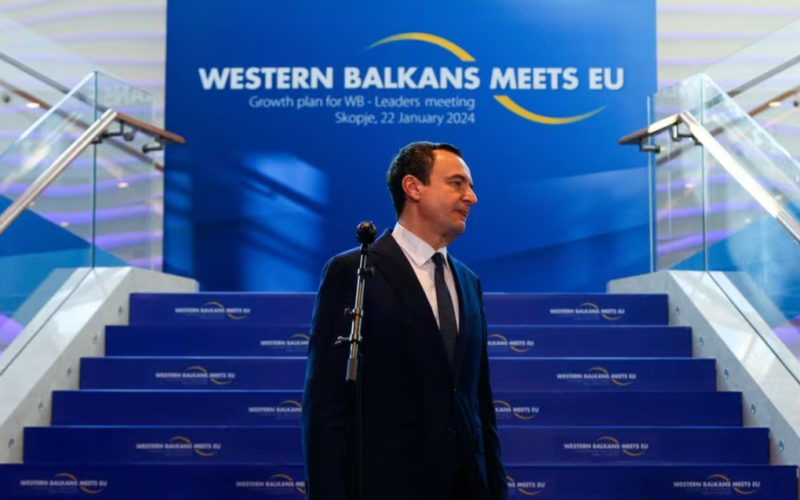In a significant development for the Western Balkans, the European Union’s (EU) ambitious 6-billion euro growth plan is being hailed as a potential “game changer” that holds the promise of doubling the size of regional economies within the next decade. Leaders from six Western Balkan countries—Albania, Bosnia, Kosovo, Montenegro, North Macedonia, and Serbia—convened in Skopje on Monday to deliberate on the reforms necessary to access the EU growth plan outlined in October. Gert Jan Koopman, the European Commission’s Director-General for Neighbourhood and Enlargement Negotiations, expressed optimism about the transformative impact of the growth plan, characterizing it as a monumental driver for regional growth.
The EU’s growth plan, a financial commitment of 6 billion euros, signifies a strategic initiative aimed at fostering economic development and integration in the Western Balkans. The potential impact of this plan is underscored by its capacity to reshape the regional economic landscape, offering an unprecedented opportunity for progress and stability. The plan’s overarching goal is to create a common regional market and progressively integrate the Western Balkans into the EU’s internal market.
Despite the commitment to EU membership extended to the Western Balkans in the past, the accession process has encountered obstacles, marked by a sluggish pace attributed to both reluctance among the EU’s member states and a lack of comprehensive reforms in the region. Serbia and Montenegro have initiated EU membership talks, while Albania and North Macedonia began negotiations in 2022. In contrast, Bosnia and Kosovo find themselves lagging in the accession process.
The EU growth plan, while presenting a substantial financial injection into the region, comes with conditions and requirements. In exchange for access to the EU’s common market, the Western Balkan countries are expected to implement crucial reforms and address outstanding issues with neighboring nations. The EU aims to instill greater stability in a region still grappling with tensions that emerged from the dissolution of Yugoslavia in the 1990s.
The 6-billion euro growth plan encompasses various facets, including opening the common market to Western Balkan countries in areas such as the free movement of goods and services, transport, and energy. This approach not only facilitates economic integration but also places an emphasis on resolving longstanding issues and fostering collaboration among regional players. The financial disbursement is contingent on the effective implementation of reforms, establishing a direct link between progress and financial support.
During the meeting in Skopje, leaders from the Western Balkans deliberated on the common regional market and the integration into the EU’s internal market. Prime Minister Albin Kurti of Kosovo emphasized that the success of the growth plan is intricately linked to the efforts and reforms undertaken by the participating countries. The meeting aims to formulate a joint declaration, reflecting the commitment of the Western Balkan nations to collaborative growth and stability.
The EU’s 6-billion euro growth plan emerges as a transformative endeavor that holds immense potential for the Western Balkans. As regional leaders navigate the complexities of the accession process and strive to meet the conditions set forth in the growth plan, the collaborative effort becomes crucial for realizing the promised economic doubling within the next decade. The outcome of these deliberations is poised to shape the trajectory of the Western Balkans, providing a beacon of hope for progress, integration, and stability in the heart of Europe.








